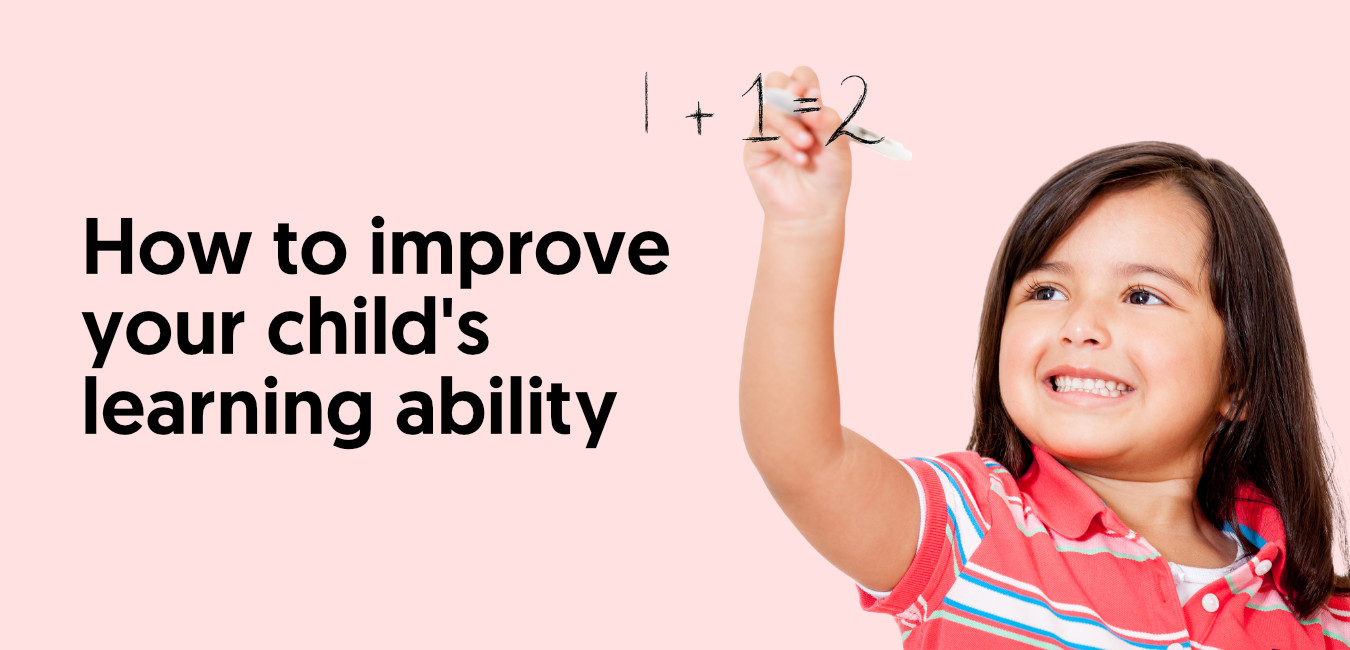Ten Effective Ways to Improve Your Child’s Learning Ability

Developing a child's learning ability is paramount for their academic success and personal growth. As parents and guardians, we play a pivotal role in shaping their educational journey. This guide aims to provide you with practical strategies and insights to empower your child with effective learning skills.
Understanding that every child is unique, we'll explore a range of techniques tailored to accommodate various learning styles and preferences. We'll delve into fostering a positive learning environment at home, where curiosity thrives and knowledge flourishes.
At The HDFC Schools, we take great pride in allowing children to learn, improve and flourish by providing an environment highly conducive to their growth and ability to learn. This is one of the reasons we have consistently been among the best schools in Bengaluru, Gurgaon and Pune.
Ten Great Tips to Help Your Child Improve Their Learning Ability
Here are ten effective strategies for supporting your children in their schoolwork and fostering academic success.
Tip 1: Establish a Purposeful Learning Environment
The physical space in which your child learns can significantly impact their ability to absorb information. Designate a quiet, well-lit study area with minimal distractions. Equip it with the necessary supplies like stationery, books, and a comfortable chair. A clutter-free environment promotes focus and concentration, allowing your child to immerse themselves in their studies. Also, take care not to watch TV or have loud conversations while your child is studying.

Tip 2: Encourage Active Engagement
Actively participating in the learning process fosters better retention and understanding. Encourage your child to ask questions, discuss concepts, and share their thoughts. Engage them in hands-on activities and interactive learning exercises. This not only makes learning enjoyable but also reinforces their comprehension. So, if your child is studying English literature, you can read the same book too and then discuss the story later. This will not only encourage your child to study thoroughly, but during the discussions, they will learn things from you as well.

Tip 3: Adapt to Learning Styles
Recognize that every child has a unique learning style. Some may excel in visual learning, while others thrive in hands-on experiences or auditory instruction. Observe your child's preferences and adapt your teaching methods accordingly. This personalised approach ensures that they receive information in a format that resonates with them. So, if your child is struggling with a subject, try to observe how they are learning the subjects they are doing well in, and incorporate those learning styles for their weaker subjects too. At The HDFC Schools, we are able to offer this personalised attention to your child since we maintain a student-teacher ratio of 20:1, much better than the national average in India.
Tip 4: Promote a Growth Mindset
Instil in your child the belief that abilities and intelligence can be developed with effort and perseverance. Encourage them to embrace challenges and view failures as opportunities to learn and grow. This mindset cultivates resilience and a positive attitude towards learning, setting the stage for continuous improvement. Encourage your child to think beyond just getting good scores. That will happen naturally if they learn well.
It is a widely held opinion among football fans that Lionel Messi is a more naturally gifted footballer than Cristiano Ronaldo, and that Ronaldo has brought himself up to and around Messi’s level through sheer effort and perseverance. This is a fine example of what grit and determination can help you achieve.
Tip 5: Establish a Consistent Routine
Consistency is key to building effective learning habits. Set a structured daily routine that includes dedicated study time. This establishes a sense of discipline and helps your child develop a habit of regular, focused learning. Consistency also provides a sense of predictability, which can reduce stress and anxiety associated with academic tasks. So it’s advisable to have a study time-table for the entire month prepared before the start of the month, so that your child isn’t left wondering what to study.
Tip 6: Foster a Love for Reading
Reading is a cornerstone of learning. Encourage your child to explore a wide range of books, both fiction and non-fiction. If they are more visual learners, you could try getting the illustrated versions of popular fiction novels. Provide access to age-appropriate reading material that aligns with their interests. Reading not only enhances language skills but also exposes them to diverse ideas and perspectives. Reading fiction is also associated with improved creativity and a host of other benefits, like improved emotional intelligence and brain function.

Tip 7: Incorporate Technology Wisely
Embrace technology as a supplementary learning tool. Utilise educational apps, interactive websites, and multimedia resources that align with your child's curriculum. Monitor screen time to ensure it remains balanced and constructive. Technology, when used mindfully, can enhance engagement and facilitate a deeper understanding of complex concepts.
Tip 8: Encourage Critical Thinking and Problem-Solving
Foster a culture of curiosity and inquiry. Encourage your child to analyse information, draw connections, and think critically. Pose open-ended questions that prompt them to explore solutions independently. This cultivates problem-solving skills and encourages independent thought, essential attributes for academic success.
Read more: How to develop your child’s problem solving skills.
Tip 9: Support a Balanced Lifestyle
Recognize the importance of holistic development. Ensure your child maintains a balanced lifestyle that includes regular exercise, adequate sleep, and healthy nutrition. Physical well-being directly impacts cognitive function and learning ability. Encourage extracurricular activities that stimulate creativity and social skills.
Tip 10: Celebrate Achievements and Effort
Recognizing and celebrating your child's achievements and efforts is crucial for their motivation and self-esteem. Whether it's acing a test or showing dedication to a project, acknowledging their accomplishments instils a sense of pride and reinforces their belief in their abilities. It communicates that hard work is valued and encourages them to continue striving for excellence. Celebrations need not be extravagant; a heartfelt word of praise, a high-five, or a special treat can go a long way. By consistently showing appreciation, you foster a positive learning environment and nurture a sense of accomplishment in your child's educational journey.
Conclusion
By implementing these tips, you can create a nurturing environment that empowers your child to maximise their learning potential. Remember that each child is unique, so it is important to be attentive to their individual needs and preferences. With your guidance, they will not only excel academically but also develop a lifelong love for learning that will serve them well throughout their educational journey and beyond.
Did you like this post? We have more relevant content for parents to help them see the best version of their child:
8 Effective Ways to Motivate Your Child to Study
8 Engaging Ways to Improve Your Child's Vocabulary
8 Effective Ways to Help Your Child Get the Best Education
How to Teach Problem-Solving Skills to Your Child?
Private School vs Public School - Which is the Best for Your Child?
Cybersecurity for Kids - How to Ensure Your Child Stays Safe Online
CBSE vs ICSE: Which is Better for Your Child?
